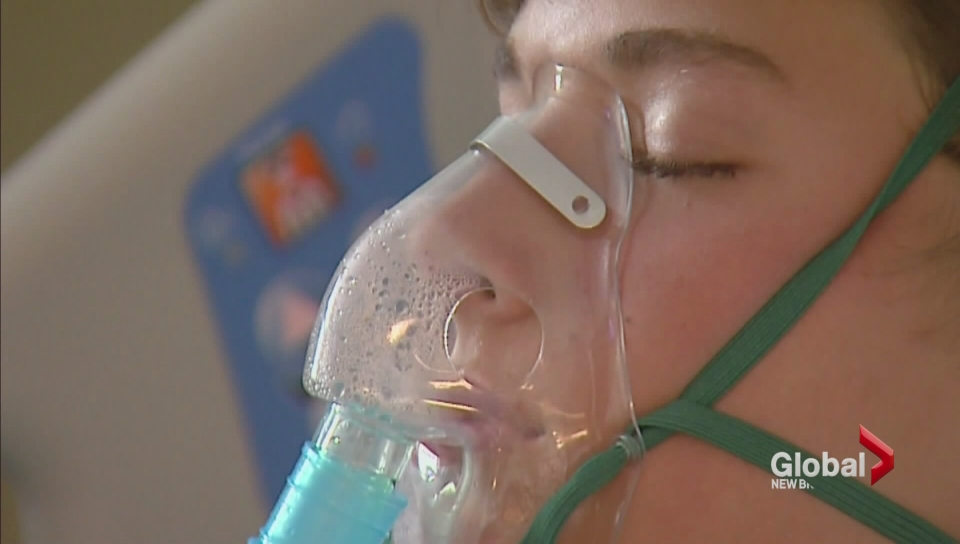California scientists say they have uncovered the genetic marking of enterovirus D68 in a handful of American kids who dealt with sudden paralysis last year.

Last summer, pediatricians and parents grappled with EV-D68, a rare respiratory virus that made thousands of kids sick across Canada and the United States. While the illness presents the same way as the common cold, some kids reported having trouble raising their arms to encountering weakness in the face.
University of California doctors in San Francisco say that EV-D68 is the culprit for the bizarre diagnosis of acute flaccid myelitis – the sudden paralysis they dealt with. They couldn’t find any other pathogen that could’ve triggered these symptoms, even after testing patients’ cerebrospinal fluid for “every known infectious agent,” they say.
READ MORE: Is enterovirus to blame for paralysis symptoms in Canadian kids?
Twenty-five kids – 16 from California and nine from Colorado – were included in the study. Eleven were part of a cluster of kids who turned up with symptoms at the same time.
The scientists examined the genetic sequences of EV-D68 in the children and found that those with paralysis symptoms all shared the new strain of the virus – the designated B1 strain. It was in the kids’ spit and, in one case, in a child’s blood as his paralysis worsened.

Get weekly health news
In a pair of siblings who shared EV-D68, only one ended up with paralysis symptoms.
READ MORE: Everything parents need to know about enterovirus symptoms, treatment
“This suggests that it’s not only the virus but also patients’ individual biology that determines what disease they may present with,” Dr. Charles Chiu, the UCSF laboratory medicine professor, explained.
“Given that none of the children have fully recovered, we urgently need to continue investigating this new strain of EV-D68 and its potential to cause acute flaccid myelitis,” he said in a statement.
Chiu’s full findings were published Monday night in the British journal, The Lancet.
At the time last October, doctors ruled out polio, but some of the sick kids tested positive for enterovirus D68.
In British Columbia, eight people tested positive for EV-D68, including one child and one young adult with symptoms of paralysis.
READ MORE: B.C. CDC says 2 patients with enterovirus D68 show signs of paralysis
Those two cases are several hundred kilometres apart, but B.C. health officials warned that there could be more to come.
The patients were two boys: one was a child between five and 10 years old who was experiencing weakness in one arm that had not improved for nearly a month, the other was a teen aged 15 to 20 who also developed weakness in one arm and was still on a breathing machine after being hospitalized for about the same period.
In Alberta, four cases of paralysis had been reported in kids battling enterovirus.
It started in the U.S. The first group of nine kids were hospitalized between Aug. 9 and Sept. 28 in Colorado. Their motor nerves were weakened, from their shoulders to their hips. Even their facial muscles were affected.
READ MORE: Is enterovirus D68 on Canadian health officials’ radar?
Doctors conducted MRIs and tested the patients’ cerebrospinal fluid. While polio can lead to paralysis in some patients, the doctors said this isn’t the case because the majority of the kids were up to date on their vaccinations.
The kids all reported respiratory illnesses before being hospitalized – the test results turned up negative for enteroviruses, polio and West Nile virus. It was the nasal passages that tested positive for enterovirus in most kids.
carmen.chai@globalnews.ca
Follow @Carmen_Chai








Comments